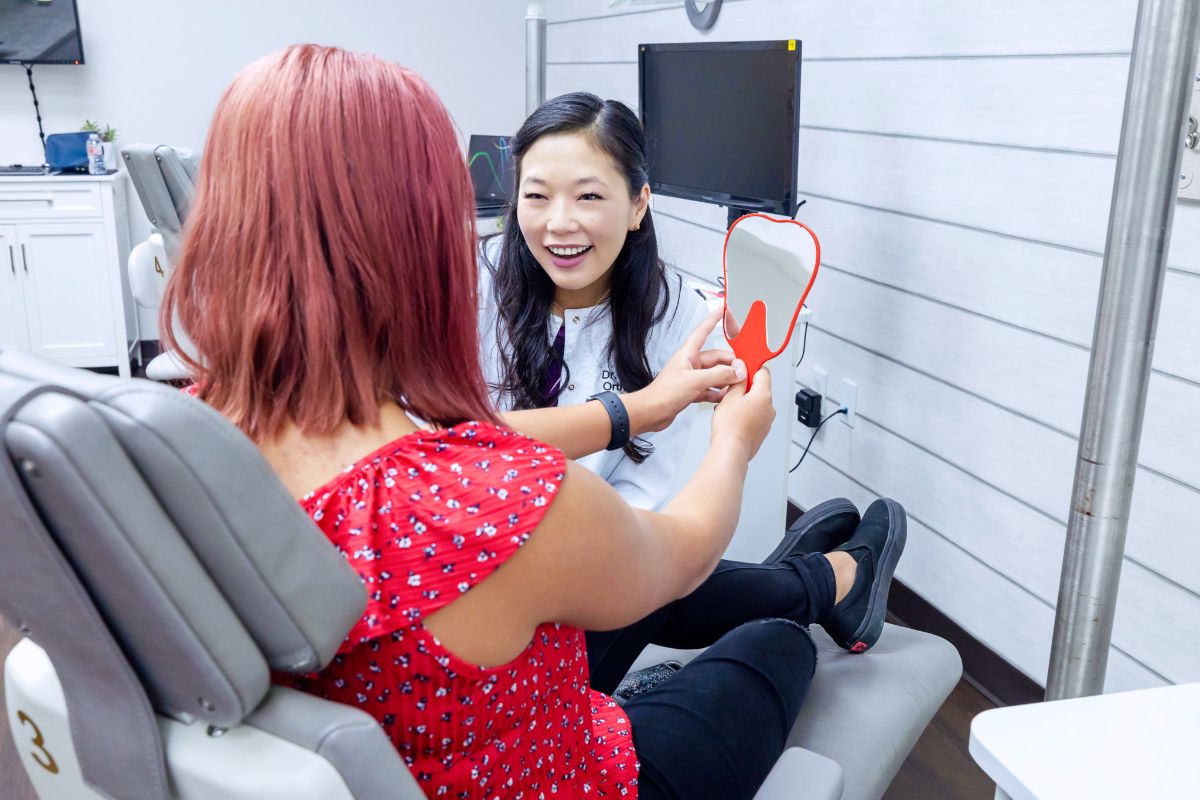There’s no denying the importance of a good bite, and the health of your jaw joints is essential for this! Unfortunately, temporomandibular joint disorders, more commonly known as TMJ or TMD, can be related to uneven bites, muscular tension, headaches, and migraines, and can make chewing and talking difficult and painful.
Here at Texas Family Orthodontics, we’re able to provide customized TMD treatment solutions for patients throughout San Antonio, Windcrest, and the surrounding areas. These treatments address and relieve the symptoms associated with TMD, and help patients reduce or eliminate pain. If you’ve been struggling with an uncomfortable bite, headaches, migraines, clicking or locking jaws, or difficulty chewing, TMD could be the culprit! Let’s take a closer look at these disorders and how we can treat them. Keep reading below to learn more!
What’s TMJ? Is it the same thing as TMD?
You’ll see many people, including professionals, using these two abbreviations interchangeably. They’re not actually the same thing, however. TMJ is short for temporomandibular joint, the hinge points that connect our jawbones to our head. This mobile joint is located directly in front of the ears, rotating and gliding while acting as a powerful hinge at the same time. This impressive mobility gives us the ability to do things like speak, yawn, and chew our food properly.
The TMJ is surrounded by a number of complex protectors like tendons, muscles, and joint pads. These components work together in harmony most of the time, but if anything throws them off balance, it can cause a range of symptoms. That’s where TMD comes in! Temporomandibular disorders are a group of conditions that involve issues with your TMJ and the facial muscles that control its movement.
TMD symptoms can flare up in any of the interconnected parts, including your jaw, ears, nose, face, neck, shoulders, and upper back. These often include:
- pain or tenderness in the jaw, face, or neck
- persistent headaches
- backaches
- clicking, popping, or grating sounds in your jaw
- difficulty or discomfort while chewing
- decreased jaw mobility and trouble opening your mouth fully
- jaws that get locked in an open or closed position
If you’ve been experiencing any of these symptoms, we encourage you to schedule a consultation with Dr. Vo to get a proper diagnosis and discuss the available treatment options.
What are the treatment options for TMD?
Fortunately, many people with TMD will experience minor symptoms that generally resolve on their own within a few weeks or months. During this time, symptoms can often be eased by:
- eating softer foods
- taking medications like ibuprofen or acetaminophen
- applying ice or moist heat to the affected area
- avoiding extreme jaw movements like wide yawning
- taking smaller bites of food
- alternating chewing on each side of your mouth
- exploring gentle stress-relief techniques
TMD can occur for many reasons, including injury, arthritis, or an imbalance in the nerves, ligaments, and muscles. It’s important to receive a proper diagnosis from an expert before deciding on a course of action, which is why Dr. Vo will conduct a thorough TMJ examination if you’re showing any symptoms. Once she’s pinpointed the cause and diagnosed TMD, she can develop a personalized treatment plan to help alleviate your discomfort. At Texas Family Orthodontics, we take a conservative multidisciplinary approach and aim to use less invasive treatments.
These non-invasive treatments will not cause any permanent changes to the structure or position of the jaw or teeth. Even patients with more persistent TMD symptoms won’t need aggressive treatment most of the time! Options for TMD may include oral appliances like custom-made mouthguards combined with physical therapy, trigger point injections, or injections with botulinum toxin (botox). If you need your bite corrected in order to minimize or eliminate TMD symptoms, Dr. Vo may recommend orthodontic treatment like braces or Invisalign clear aligners. We’ll walk you through all of your choices during your consultation.
Treat TMD symptoms with Texas Family Orthodontics
If the symptoms of TMD are affecting your daily life and interrupting your sleep, our expert team is here for you! We can get to the root of your TMD issues and help you reclaim your life. To find out more, get in touch with us to schedule your consultation in our San Antonio or Windcrest office today!
 Free Consult
Free Consult

